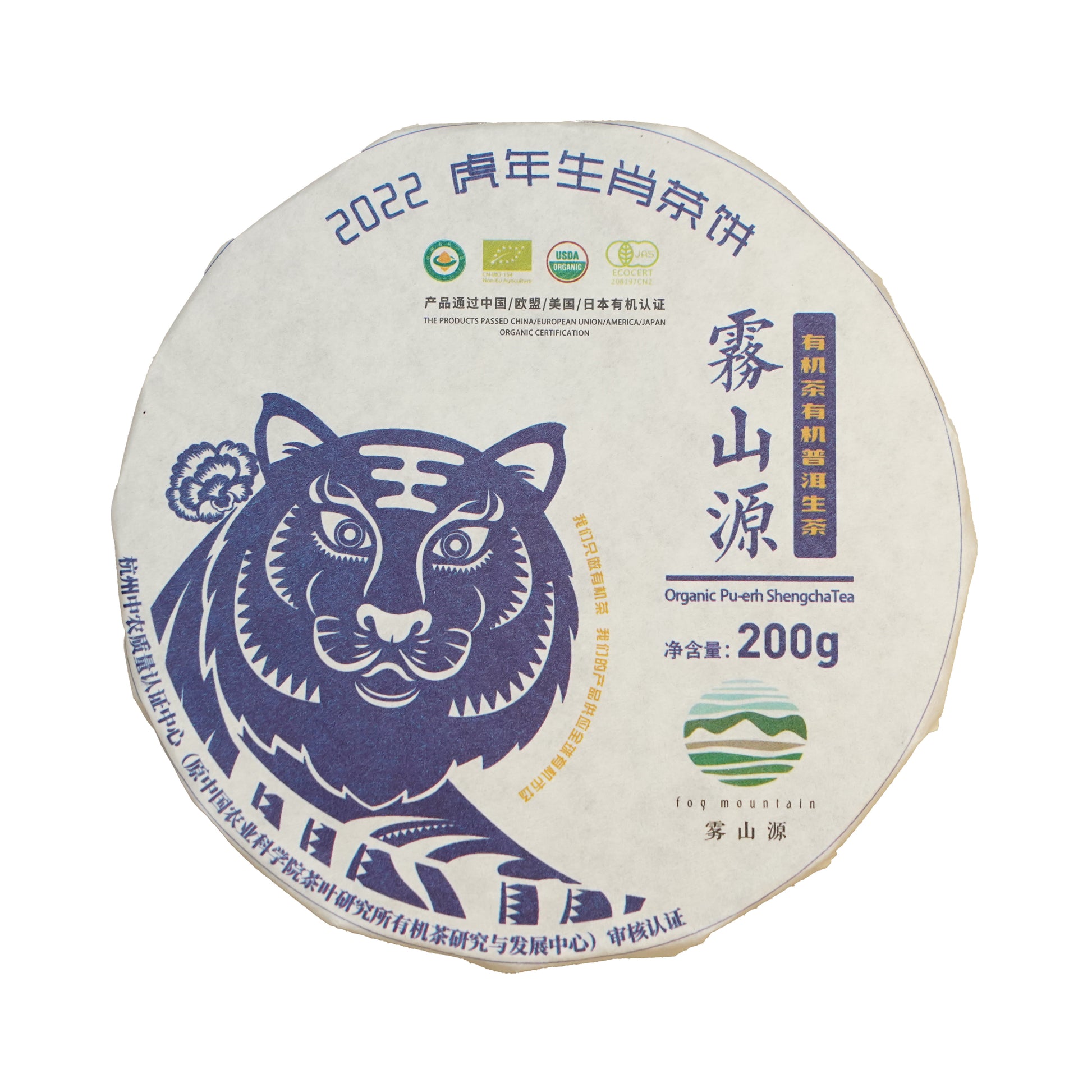Skip to product information


Organic Raw Pu-erh Tea Cake – 2022 Year of the Tiger Zodiac Commemorative Edition
$60.00
Shipping calculated at checkout.
Weight: 7 oz (200 g)
Origin: Pu-erh City, China
Variety: Yunnan Large-leaf Variety
Harvest: Spring 2022
Oxidation: Oxidized
Caffeine: Medium
Theanine: High
Catechin: High
Tasting Notes (5/16/2025)
Aroma: dried fruits, aged wood, jujube, dark brown sugar
Taste: thick, smooth, sweet, full-bodied, long-lasting aftertaste
Pickup currently not available



